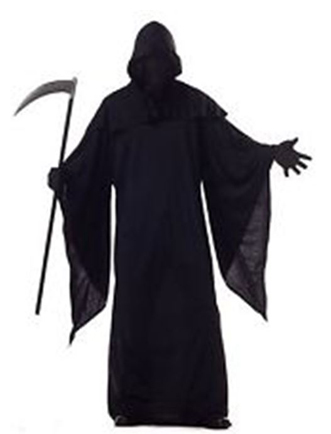…but something that can be found everywhere – in an unnatural way – all year around.
By Irene Halford
In the usual narrative of a horror movie: you are not safe anywhere as sooner or later Death will find you, or those closest to you, regardless of how much you try to hide, run or even fight. In a film, the nightmare scenario comes to an end normally after 90 minutes, yet in Venezuela it just mutates to an ever-greater horror as time goes by with no closure on sight.
Violent deaths were the initial factor to pave the way to the dark times the country finds itself in. Firstly, due to the high levels of gun violence in the country as a direct result of numerous illegal arms – over 6 million are held without the adequate documentation. Last year only 1300 were recovered in a government Amnesty. Therefore, it is no surprise that around 27000 people were murdered – even more alarming over 90% went unpunished. Caracas is now, according to The Economist, the most dangerous city in the word.
The number of arms is followed by the next deadly factors to be added to the already mortal equation: lack of medicines. The almost non-existence of these has developed into what The Guardian had identified as a public health emergency, even basic medication such as aspirin are almost none existent, unless you are fortunate enough to find any – usually only after hours of queuing and making a pilgrimage to numerous establishments. Incredibly, Human Rights Watch reported in May this year that President Maduro asked the Supreme Court to block a law by the opposition-led National Assembly that would have facilitated international humanitarian aid and authorize the shipment of medicines from abroad, citing interventionist intentions attached to the offer. Furthermore, in June, as a response to the international outcry of the state of Venezuela, the Foreign Affairs Minister Delcy Rodríguez declared astonishingly to the Organization of American States’ (OAS) Permanent Council that: “There is no humanitarian crisis in Venezuela. There is not. I say this with full responsibility: there is not”. Shortly after, to the dismay of those at the receiving end of the crisis, this was reiterated by Luisana Melo, the health minister, who told the Inter-American Commission on Human Rights (IACHR) that “in general, the Venezuelan people have guaranteed access to treat all their illnesses.”
Well as if all the already mentioned deadly factors were not enough there is now the food shortage element to add. Instead of going shopping with a list as they use to in the old days and with the only query being whether to buy this or that brand, Venezuelans currently consider themselves lucky if they are to find a shelve with any items on it. As documented by the BBC’s Going Hungry in Venezuela, the situation is critical in the capital but even more so in the interior where people can obtain even less. The Government appears in this way to be out of touch – or in denial – with the country’s realities as seen in their statements to the Organization of American States’ (OAS) and the Inter-American Commission on Human Rights (IACHR).
Although one cannot deny the logic for many supporters of the regime to believe that this lack or resources is an orchestrated manoeuvre on behalf of outside agents, as many countries in Latin America have been feeling the effects of a concerted Media campaign against “progressive” governments – Honduras, Paraguay, Argentina, Brazil, which many claim included creating shortages in Venezuela. And in terms of history: How can one forget those unsettling days prior to Pinochet dictatorship?. However, they must also recall that the socialist leader at the time, Salvador Allende, went to the United Nations to ask for help, thus acknowledging fully the critical situation that his country found itself in, instead of putting his not losing face attitude as a priority to his peoples’ well-being.
Many Venezuelans, who tend to be devotees of the church, have stopped putting candles to their most venerated icons in order to ‘punish’ them for lack of actions. But there is room for optimism with the signs of possible talks between the opposing sides thanks to the leadership of the Vatican. But for this country to get back on its feet it will take not just some candle lighting or intervention of the highest men of the church, some would argue that only divine intervention at this stage would do. Let us hope though for the sake of the Venezuelan people that the talks are a stepping stone to brighter days allowing them to feel they can light their candles with faith once again.










